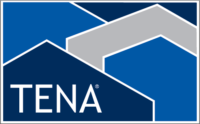This summary represents an analysis of servicing Quality Control data from servicing life events analyzed by TENA’s Servicing QC Department during the second and third quarters of 2019. During that timeframe an excess of 80,000 mortgage servicing Quality Control reviews were conducted with over 2,500 unique audit exceptions cited by TENA auditors. Those audit results were analyzed to identify emerging trends and common findings. The following audit findings were identified as being notable.
- Audit Finding: (S999-99-107) The Servicer did not periodically check the mortgage loan borrowers against the current OFAC SDN list as required.
One component of TENA’s Annual Disclosure review ascertains whether the Servicer has periodically checked the names of borrowers on serviced loans to see if they have been listed on the OFAC SDN List (Specially Designated Nationals and Blocked Persons List). The Department of Treasury Office of Foreign Assets Control (OFAC) requires a servicer to periodically conduct such tests.
Investors, including Fannie Mae and Freddie Mac, require Seller/Servicers to establish and maintain an effective OFAC compliance program to ensure compliance with the Department of Treasury Regulations. This includes screening each borrower against OFAC’s most recent SDN List prior to initial delivery of loans to the investor and periodically thereafter, for all loans the Servicer continues to service for the investor.
TENA’s auditors frequently were unable to verify that periodic screening of mortgagees against the SDN list had been completed by a Servicer. In addition, even when there was evidence that some degree of a screening effort had been undertaken by the Servicer, there often were no records (or inadequate records) notating the time and results of the SDN check at a loan level.
TENA Recommendation: Review your firm’s policies and procedures as they relate to monitoring your Servicing portfolio(s) against the OFAC SDN List. If a third-party vendor is used to fulfill this requirement, remember to complete no less than an annual review of the vendor’s processes and the agreement governing them. To test that the monitoring requirements are being adhered to, consider utilizing a targeted QC audit on a population to verify the process is being completed and documented in your firm’s system of record.
For guidelines regarding this matter, consult: 77 FR 1864: OFAC Transnational Criminal Organizations; FHLB MPF Traditional Servicing Guide; FHLB MPF Government MBS Servicing Guide; FHLB MPF Xtra Servicing Guide; FNMA 2018 Selling Guide A3-2-01; FHLMC Single-Family Seller/Servicer Guide, 1301.2
- Audit Finding: (S003-06-040) The amount of hazard insurance coverage reflected in the servicing system was not adequate.
In the second and third quarters of 2019, TENA detected an increase in the frequency that serviced loans were noted to have insufficient levels of hazard insurance. Many investors and guarantors require servicers to ensure that hazard insurance policies are maintained in an amount sufficient to protect the security against risks. Also, each agency and investor have variable guidelines on what constitutes adequate insurance coverage. TENA’s Tax and Insurance audits identified systemic instances of insufficient insurance, violating requirements of all investors and agencies.
These findings of insufficient insurance in serviced loans is consistent with similar findings made by TENA auditors during Servicing Onboarding Reviews. Namely, finding S001-06-002: The information regarding hazard insurance in the servicing system did not match the hazard insurance binder. During the onboarding reviews, TENA determines whether select data in the loan servicing system (including borrowers’ names, insurance policy number, coverage amounts, deductibles, and property address) match the hazard insurance binder that is on file. On numerous occasions the information regarding the hazard insurance coverage reflected in the servicer’s system of record does not match the current hazard insurance binder. Incorrect information obtained by the Servicer during the onboarding process can cause significant issues as the loan seasons. The issue of inadequate insurance coverage can often be traced back to the time of loan onboarding.
TENA Recommendation: Periodically review your company’s processes for ensuring that serviced loans meet the minimum hazard insurance coverage requirements established by agencies and investors. Quality control checks to ensure that adequate insurance coverage is in place should be performed at the time of loan on-boarding as well as periodically thereafter during the life of the loan.
For guidelines regarding this matter, consult: FHLB MPF Traditional Servicing Guide; FHLB MPF Government MBS Servicing Guide; FHLB MPF Xtra Servicing Guide; GNMA MBS Guide 5500.3 REV-1: (14-9)(B); FHLMC Single-Family Seller/Servicer Guide, 8202.2; VA Servicer Handbook M26-4: 3.03, a(8)(a); FNMA Servicing Guide B-2-02; FNMA Servicing Guide F-1-02; FNMA Servicing Guide B-2-03
- Audit Finding: (S999-99-004) Evidence indicated that the servicer corresponded with the borrower in a way that may be considered unprofessional.
TENA identified multiple instances wherein the servicer’s representative, when speaking to the borrower during a call, did not provide the borrower with accurate information or acted in what could be construed to be an unprofessional manner. When reviewing the Servicer’s notes log and/or listening to recordings of telephone conversations between the Servicer’s representatives and mortgagors, TENA’s auditors found numerous instances where the Servicer’s representative treated the borrower in a disrespectful and/or unprofessional manner. Examples include: 1) Inappropriate discussions with a borrower on the phone; 2) providing borrowers with misinformation regarding loss mitigation options; 3) not attempting to confirm that borrower information was accurate; and, 4) using rude and/or aggressive tones with the borrower during a routine information request.
TENA Recommendation: Conduct a periodic quality control review of servicing representative calls (or call recordings) to ascertain whether borrowers are being treated appropriately by your firm’s representatives. In such reviews it is important to include a representative sample of all calls related to your firm; including but not limited to, incoming calls, outgoing calls, collection calls, information requests, payoff requests, and escrow questions.
For guidelines regarding this matter, consult: FDCPA 15 U.S.C. § 1692d
- Audit Finding: (S004-07-283) Live contact was established with the borrower(s); however, the servicer did not obtain from the borrower the occupancy status of the property, the reason for default and/or notify the borrower of the availability of Loss Mitigation Options.
The FHA Single Family Housing Policy Handbook 4000.1 states: “Promptly after establishing live contact, the Mortgagee must determine whether the Borrower is occupying the Property, ascertain the reason for the delinquency, and inform the Borrower about the availability of Loss Mitigation Options.”
Additionally, the FHA Single Family Handbook encourages mortgagees to have written policies in place for their customer service, loss mitigation, foreclosure prevention, and collections departments so that inbound and outbound collection calls will consistently be handled in accordance with FHA requirements. The FHA Single Family Handbook further recommends that these policies be addressed in a firm’s QC Plan.
During the second and third quarters of 2019, TENA auditors identified many occurrences where telephone contact was established with the borrower; however, the servicer did not obtain or attempt to obtain all required data elements from the delinquent borrower. In many instances the firm’s representative would properly inquire about the reason for the delinquency and even inform the borrower about available loss mitigation options, but representatives were often remiss in verifying the current occupancy status of the borrower.
TENA Recommendation:
1) Review your firm’s policies and procedures to ensure that a comprehensive outline for the execution of collection-related calls is in place.
2) Review your firm’s training processes regarding the appropriate manner in which your firm’s representatives conduct themselves relative to all collection related calls.
3) Review your firm’s Quality Control Plan to ensure that testing procedures are in place to monitor whether all impacted employees are properly executing your firm’s established procedures when engaged in a live contact with the borrower.
TENA recommends reviewing your firm’s collection call procedures as an extension of the monthly delinquent population reviews.
For guidelines regarding this matter, consult: FHA SFHPH 4000.1 – III.A.2.h.(v)(A)
- Audit Finding: (S999-99-058) Evidence in the file suggested the account status reported to the credit repositories was inaccurate.
A number of investors and agencies require servicers to provide to all four major credit repositories, on a monthly basis, accurate status reports for all mortgage loans being serviced. These reports utilize specific status codes to designate the status of every mortgage as it exists on the last calendar day of each month. Milestones for these status reports include: a) all new originations; b) all non-delinquent (current) mortgage loans; c) all delinquent mortgage loans – including whether they are 30, 60, or 90+ days delinquent; and d) all liquidated mortgage loans (i.e. short sales, deed-in-lieu, foreclosure, etc.).
During the second and third quarter of 2019, TENA Auditors frequently were unable to verify that the appropriate status codes were reported each month to each of the four major credit repositories on all applicable loans. In many instances, there were no auditable records of such reporting efforts; sometimes the report records could not be produced at all or if produced, could not be verified. Consequently, the servicer could not demonstrate that full-file reports reflecting the applicable milestones had been transmitted on a monthly basis to each credit repository.
TENA Recommendation: Examine your firm’s policies and procedures as they relate to the full and accurate monthly status reporting to all four credit repositories. Periodically test your firm’s accuracy of reporting by performing quality control checks that cover each reportable life-event category.
For guidelines regarding this matter, consult: VA Servicer Handbook M26-4: 4.10; RHS HB-1-3555 SFH Guaranteed Loan Program Technical Handbook 18.3; FHA SFHPH 4000.1 – III.A.2.c.; FHLB MPF Xtra Servicing Guide; FNMA Servicing Guide C-4.1-01; FHLMC Single-Family Seller/Servicer Guide, 8106.6







